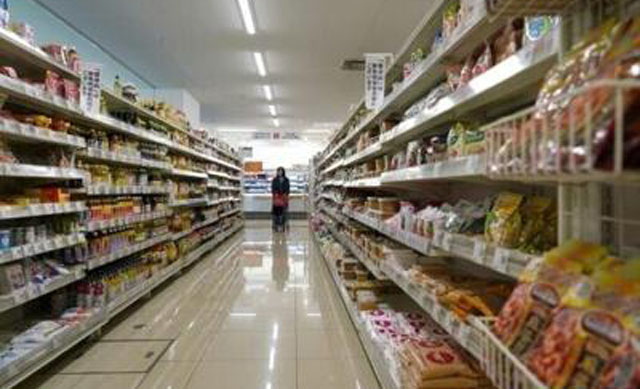
TOKYO, May 24, 2024 (BSS/AFP) - The pace of Japanese inflation slowed in
April as gas bills fell, government data showed Friday, raising questions
about when the Bank of Japan will hike interest rates again.
The Consumer Price Index excluding volatile fresh food prices came in at 2.2
percent, compared with the 2.6 percent logged in March by the internal
affairs ministry.
The figure was in line with market expectations and comes even as the weak
yen inflates prices for imported goods.
The data "probably reflects a move by companies to restrain price hikes in
response to sluggish consumer demand", Taro Kimura from Bloomberg Economics
said.
"But the core gauge is still above the Bank of Japan's two percent target --
and the latest data is unlikely to deter the central bank from normalising
policy," it said.
While the United States and other major economies have battled sky-high
inflation in recent years, price rises in Japan have been less extreme.
The Bank of Japan's long-standing, ultra-loose monetary policies are meant to
banish stagnation and deflation from the world's number four economy.
It is targeting sustainable demand-driven inflation of two percent, as
opposed to inflation caused by unstable, temporary factors such as the war in
Ukraine.
In March -- in part thanks to meeting its target -- the BoJ hiked borrowing
cost rates for the first time since 2007.
Some analysts have predicted its next rise could come in the summer or
October.
The central bank "appears confident that a virtuous wage-price cycle will
buoy inflation going forward", Kimura said, referring to expectations that
rises in wages will help realise the sustainable inflation sought by bank
officials.
"An expected rise in utility fees will also lift the inflation data in coming
months, providing good optics for BoJ rate hikes" in July and October, he
added.
Jeemin Bang of Moody's Analytics said "inflation should cool in the months
ahead... but an extraordinarily weak yen and the phase-out of energy
subsidies mean the overall pace of deceleration will be slow".
Wage growth in the second half of the year should lift consumer spending and
"provide for a modicum of demand-driven price pressure", Bang added.
"But wage data has been wobbly," which "complicates the outlook for the Bank
of Japan as it looks to raise interest rates" further, she cautioned.
Other major central banks including the US Federal Reserve still have much
higher interest rates, and the wide differential has put huge pressure on the
yen, which hit a 34-year low last month, leading authorities to intervene in
forex markets to provide support.
A weaker yen is good for Japanese exporters and foreign visitors, but it
makes imports and foreign travel for outbound tourists more expensive.
Stripping out both fresh food and energy, prices rose 2.4 percent in April,
also matching the market consensus, down from 2.9 percent in March.